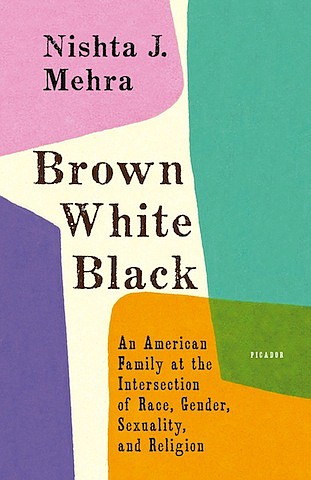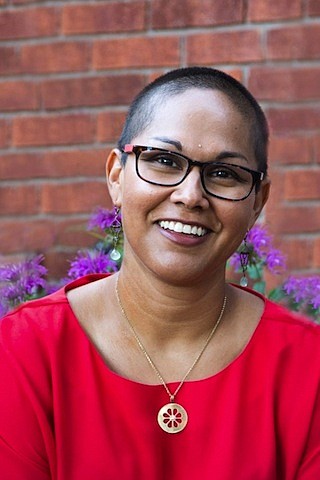“Brown White Black: An American Family at the Intersection of Race, Gender, Sexuality, and Religion” by Nishta Mehra
Terri Schlichenmeyer | 3/1/2019, 3:18 p.m.

Column A or Column B?
Truth is, you don’t fit in either. You’re unique, from your toes to your hair, inside and out. People can try to categorize you, but it just won’t work. As you’ll see in the new book “Brown White Black” by Nishta J. Mehra, there’s a lot to learn.
One of her earliest memories still stings.
Nishta Mehra was “about seven or eight years old” when she was shopping with her mother and a little boy called her the n-word. She cried then, not because she was Black but because she wasn’t.
As the child of parents from India, Mehra is “brown” but she “came of age not fully at home in either black or white spaces.” She was an only child with few other Indians nearby, and she had to blaze her own trails through whatever discomforts she might feel in social, religious, and cultural situations – something that was exacerbated when she went to college and she “realized that I was queer.”
Today, Mehra’s life is “complicated.”
Her internal narrative always included children but never a wedding. While in college, though, she met a white woman who became her professor, then her partner, then her wife. Nineteen years Mehra’s senior, Jill had assumed that she’d never have children, until the idea of adoption became so appealing that the two women carefully searched for a gay-friendly agency.
Nine months later, they were the mothers of a Black baby boy.
It takes a lot of restraint to continue to kindly answer questions about being “a two-mom, three-color family,” says Mehra. People say things that are hurtful or that make her angry but that’s also given her a better awareness of the privilege she had and of the institutions and limitations of gender assumptions and roles and of racism in America.
“I often wonder if what feels so essential to me now,” she muses, “would still be on our radar if we did not have a black son.”
Sticks and stones, as the playground saying goes, are more damaging than mere words. It’s a retort that author Nishta J. Mehra disputes, but conflictingly so.
While so very valuable as an entry into the national conversation on the meaning of language and family, “Brown White Black” may also seem somewhat rant-like. Mehra makes many excellent points: in how she shouldn’t have to explain her life, her son’s life, his love of “girly” things, or her shorn head; on why she allows him certain freedoms; on having children, and the panoply of choices.
But then, curiously, she questions the choices of others in childrearing, friend-making,
and mundane things like “car sticker families,” focusing particularly on language (“words matter”) and seemingly refusing to allow for even the slightest of natural human awkwardness.
“We’re making it up as we go,” says Mehra on gay marriage, and that’s a sentence to remember if you tackle this book. “Brown White Black” is certainly a thought-provoking look at modern American families but for some readers, it just won’t fit.




